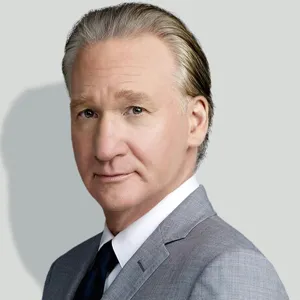Podcast Summary
Culture wars dominate 2023 Republican primary education conversation: Republican primaries focus on culture wars instead of educational policies, with candidates like Trump and DeSantis advocating for cutting federal funding for schools promoting critical race theory and protecting women's sports.
During the 2023 Republican presidential primaries, the conversation around education has been dominated by culture wars rather than educational policy. While the president does not have direct control over education policy, it has been a topic for presidential candidates in the past. This time around, candidates like Donald Trump and Ron DeSantis have been vocal about cutting federal funding for schools promoting critical race theory and protecting women's sports. These culture war issues have taken center stage in their campaigns, with less emphasis on specific educational policies.
Republican primary debates: Education issues as a differentiator: Candidates like DeSantis and Haley use education issues to connect with voters and distinguish themselves, emphasizing their stances on critical race theory and proficiency numbers, but a president's control over education policy is limited.
During the Republican primary debates, candidates like Ron DeSantis and Nikki Haley use education issues, including race, gender, and transgender students, as a way to connect with voters and differentiate themselves. DeSantis emphasizes his stance on critical race theory, while Haley focuses on proficiency numbers in education and the importance of strong women leaders. However, it's important to note that a president's power to control education policy is limited, and these discussions may be more about voters' concerns than what employers actually need. Ultimately, these debates provide an opportunity for candidates to share their values and perspectives with voters.
Candidates' Approach to Education and Parents' Influence: Iowa and New Hampshire voters consider education an important issue, and candidates' stances on schools and parents' role resonate with their supporters, reflecting broader values and styles.
While education may not be the top issue for most Iowa and New Hampshire voters, it still plays a significant role in their decision-making process when it comes to choosing a candidate. The way candidates approach education and the influence of parents in schools resonates with their supporters, reflecting the candidates' overall values and styles. For instance, farmers like Dave Meggers in Iowa, who have attended Trump rallies, appreciate the candidate's tough stance on schools and parents' influence. On the other hand, Stacy Dawn, the president of the local Chamber of Commerce in Iowa who attended a Nikki Haley town hall, emphasizes the importance of making schools a positive environment for children to learn and compete in the global economy. Ultimately, education is an essential component of the broader conversation around candidates' leadership abilities and their connection to voters' values.
The Role of Education in the Republican Party's Election Strategy: The education issue in the election is a generational and regional divide impacting funding and resources, with local dynamics and state politics also playing a role. White college-educated voters have shifted towards Democrats, but higher and K-12 education are distinct issues.
The issue of education plays a significant role in the upcoming election, particularly for the Republican party. While it may not always be a top issue for voters, it is a generational and regional divide that can impact funding and resources. Local dynamics and state politics also come into play, as seen in the endorsement of Ron DeSantis by Iowa Governor Kim Reynolds due to her popularity among voters for her handling of schools during COVID-19. The Republican party has seen a demographic shift with white college-educated voters leaving the party and joining Democrats. However, it's important to note that higher education and K-12 education are distinct issues and should not be conflated. Ultimately, education policies and priorities can vary greatly depending on the specific context of each state and community.
Polarized Views on Education Policy: Republicans prioritize parental control, while Democrats emphasize a well-rounded education.
The debate around education policy in the United States is increasingly polarized between Republicans and Democrats, with each side holding strong, contrasting views. Historically, discussions about local control have been linked to resistance to integration and segregation. Today, issues like transgender rights and COVID policies have become flashpoints. Republican voters often express a desire for parents to have more control over their children's education, particularly when it comes to sensitive topics like sex and gender. Democrats, on the other hand, view these issues as important parts of a well-rounded education. As we look towards the 2024 elections, it's likely that Republican nominees will need to appeal to a broader audience, potentially altering their messaging on education to do so. Candidates may need to focus more on student achievement and less on culture war issues to win over moderates. However, it remains to be seen if any candidate will actually make this shift.
Republicans focusing on education, parents' rights to regain control: Republicans are adopting a strategy to focus on education and parents' rights, aiming to regain control of schools and give more authority to parents, while avoiding divisive culture war debates.
The education issue in American politics has long been seen as an advantage for the Democrats. However, Republicans have been making inroads in recent times, focusing on achievement and parents' rights. This strategy was effectively employed by Glenn Youngkin, the new governor of Virginia, during his election campaign. Nikki Haley, a potential Republican presidential candidate, is also adopting a similar approach, combining culture war issues with a focus on the basics of education. The goal is to regain control of schools and give more authority to parents, while avoiding divisive culture war debates. This strategy, which has broader appeal, will be worth watching as the 2024 presidential race unfolds.






